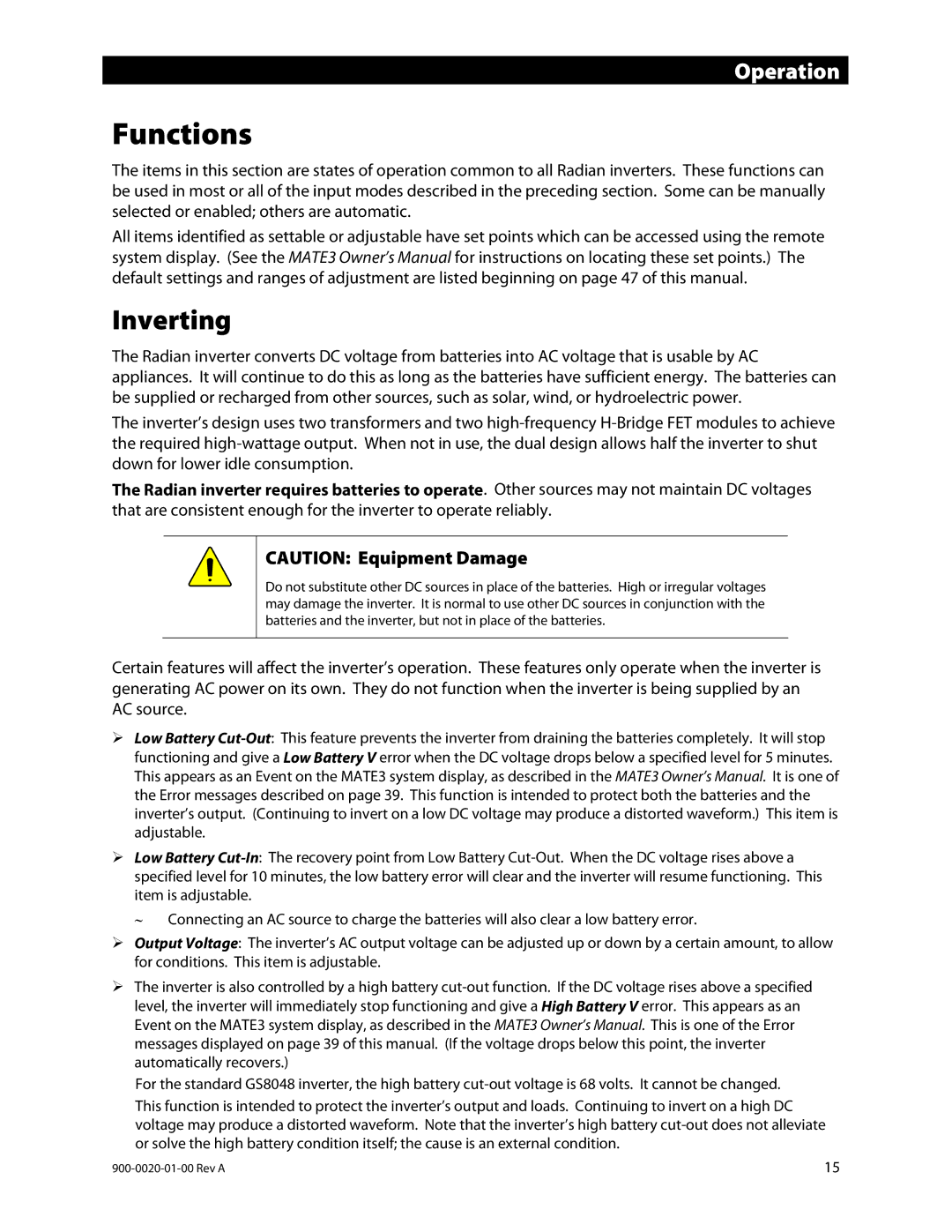
Operation
Functions
The items in this section are states of operation common to all Radian inverters. These functions can be used in most or all of the input modes described in the preceding section. Some can be manually selected or enabled; others are automatic.
All items identified as settable or adjustable have set points which can be accessed using the remote system display. (See the MATE3 Owner’s Manual for instructions on locating these set points.) The default settings and ranges of adjustment are listed beginning on page 47 of this manual.
Inverting
The Radian inverter converts DC voltage from batteries into AC voltage that is usable by AC appliances. It will continue to do this as long as the batteries have sufficient energy. The batteries can be supplied or recharged from other sources, such as solar, wind, or hydroelectric power.
The inverter’s design uses two transformers and two
The Radian inverter requires batteries to operate. Other sources may not maintain DC voltages that are consistent enough for the inverter to operate reliably.
CAUTION: Equipment Damage
Do not substitute other DC sources in place of the batteries. High or irregular voltages may damage the inverter. It is normal to use other DC sources in conjunction with the batteries and the inverter, but not in place of the batteries.
Certain features will affect the inverter’s operation. These features only operate when the inverter is generating AC power on its own. They do not function when the inverter is being supplied by an AC source.
Low Battery
Low Battery
∼ Connecting an AC source to charge the batteries will also clear a low battery error.
Output Voltage: The inverter’s AC output voltage can be adjusted up or down by a certain amount, to allow for conditions. This item is adjustable.
The inverter is also controlled by a high battery
For the standard GS8048 inverter, the high battery
15 |
